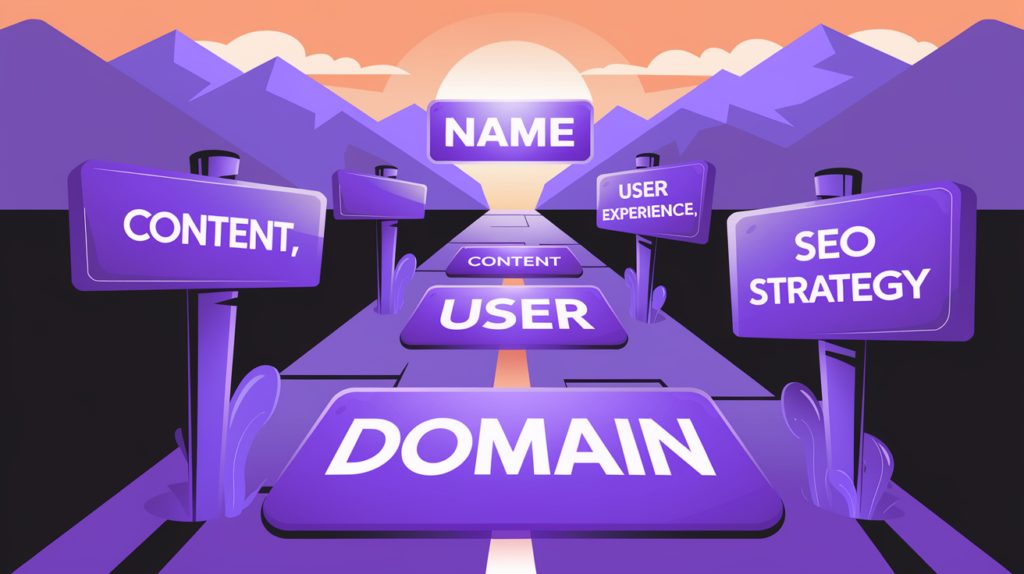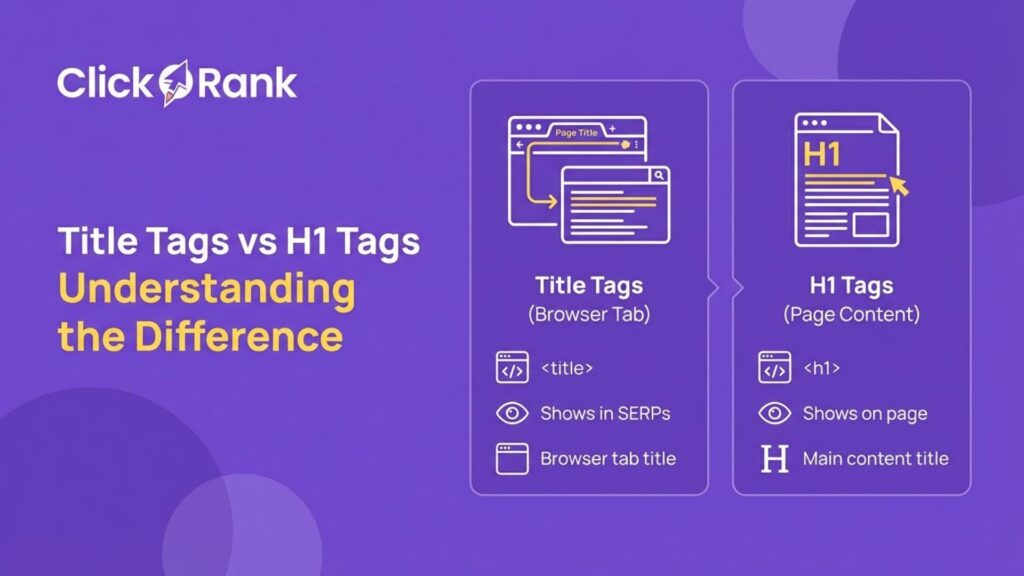Thinking about buying a domain that matches your main keyword? For years, exact match domains (EMDs) were a quick way to rank high in search results. But is that still true in 2025? The short answer is: EMDs are no longer a magic bullet, but they’re not completely irrelevant either.
The value of an EMD today depends entirely on your strategy. While Google has shifted its focus to content and user experience, an EMD can still be a helpful tool if you use it correctly. The real challenge is knowing how to use them effectively. Let’s break down the current state of EMDs.

The State of EMDs in 2025
Google’s algorithm has evolved. In the past, EMDs like digitalnomads.com could easily rank simply because the domain matched the keyword. However, Google no longer rewards domains just for a keyword match. Today, content quality and user experience matter more than anything else.
That said, EMDs aren’t useless. While they’re no longer a direct ranking factor, they can still help in other ways:
- Increased clicks: A domain matching a search query can catch a user’s attention and encourage more clicks.
- Brand relevance: An EMD can make your site look more relevant to users, which helps build initial trust.
- Long-term impact: Higher click-through rates and engagement can indirectly boost your site’s authority over time.
Google’s Stance and the EMD Algorithm
Google’s shift away from favoring EMDs began with an algorithm update to prevent low-quality, spammy sites from ranking just because of their domain name. The goal was to reward sites that truly delivered value.
As Google’s John Mueller has pointed out, relying on a keyword-heavy domain has its downsides. It can make your brand seem less professional and harder to expand your business focus later on. It also makes it harder to build a distinct brand name that people can search for directly.
This is why the Exact Match Domain (EMD) penalty was introduced. If an EMD lacks valuable content or appears spammy, it may be demoted to prevent manipulation of search results.
The Psychological Impact of EMDs on Users
Why do exact match domains still catch attention, even if they’re not a magic SEO trick anymore? It’s all about how they influence people.
- They feel trustworthy. When someone searches for “digital nomads” and sees digitalnomads.com, it looks like the perfect match. That immediate connection can create a sense of trust.
- They’re easy to remember. A domain that matches the search term is simple and memorable, making it easier for people to come back later.
- They drive clicks. Users often assume a matching domain is more relevant to their search, which can lead to higher click-through rates.
But let’s not forget the limitations: an EMD might grab attention, but if the content doesn’t deliver value, users will leave quickly, hurting your SEO. A strong, recognizable brand can always outperform an EMD, especially if the content and marketing are top-notch.

When EMDs Can Be a Good Investment
Exact match domains aren’t as powerful as they once were, but in some cases, they can still offer an edge. Here’s when EMDs might work in your favor:
- Targeting Niche or Local Markets: In highly specific niches or for local SEO, an EMD can create instant relevance and help small businesses build trust. For example, phillyinjurylawyers.com can have an immediate impact in its community.
- Building Topical Relevance: EMDs naturally align with a single topic. If your domain is digitalnomads.com, all your content can reinforce that keyword, which strengthens your site’s authority in that niche.
- Boosting Click-Through Rates: Matching domains can improve CTR by grabbing attention in search results.
- Supporting Branding Efforts: If the EMD aligns with your brand, it can simplify marketing and help users associate your brand with that term.
Are Exact Match Domains Worth the Cost?
Exact match domains can come with a hefty price tag, but are they really worth the investment? Let’s break it down:
- The High Cost of Premium Domains: Popular EMDs often sell for tens of thousands of dollars, and companies sometimes pay millions. The question is, does the return justify the expense?
- EMDs Alone Won’t Guarantee Success: Google’s algorithm now focuses more on quality content, backlinks, and user experience. Buying an EMD won’t guarantee high rankings without a solid SEO strategy. Tools like the best rank tracker tools can help you measure progress and adjust your strategy regardless of your domain type.
- Alternative Strategies:
- Branded domains: A memorable brand name paired with high-quality content can outperform EMDs.
- Partial match domains (PMDs): Domains that include part of your target keyword can strike a balance between branding and relevance (e.g., NomadHQ.com).
- Focused marketing: Investing in content, backlinks, and technical SEO will almost always yield better, more sustainable results than spending on a premium EMD. It’s worth exploring whether SEO can be automated to scale results more efficiently.
The money you spend on a premium domain might be better spent on building a strong brand, creating excellent content, and optimizing your site for search engines.

Free Tools to Power Your Domain and Content Strategy
As we’ve seen, the true value of a domain name today lies in the content and brand you build around it. That’s why investing in a strong SEO and content strategy is a better use of resources than spending a fortune on an EMD. Our suite of free AI tools helps you execute that strategy from the ground up:
- AI Keyword Tool: Stop guessing what to write about. This tool generates SEO-friendly keyword suggestions to align your content with what users are actually searching for.
- AI Business Name Generator: If you decide a branded domain is better for the long term, this tool helps you brainstorm catchy, memorable names.
- AI Content Idea Generator: Go beyond a single keyword and instantly generate blog post, article, or social media content ideas that build topical authority in your niche.
- Title Tag & Meta Description Generators: Once you’ve created great content, use these tools to craft compelling on-page elements that increase visibility and click-through rates in search results.
- AI Rewording & Text Humanizer: Ensure your content is high-quality and original. These tools help you improve clarity, tone, and transform AI-generated text into more natural, audience-friendly prose.
A great domain is only as good as the content on it. These free tools ensure you have the creative and technical support you need to make your website successful, regardless of your domain name.
Final Thoughts
If the domain aligns with your brand and is reasonably priced, it might be worth considering. However, don’t let the domain name overshadow the more critical aspects of SEO, like content and user engagement. The real question isn’t whether an EMD will help you rank; it’s whether it fits into your broader goals and budget.
Frequently Asked Questions
What are Examples of Exact Match Domain in SEO?
An Exact Match Domain (EMD) is a domain name that precisely matches a target keyword. Examples include hotels.com for hotel bookings, buyusedcars.com for used cars, and bloggingtips.com for blogging advice.
What is the difference between simple URL match and exact URL match?
The difference between a simple URL match and an exact URL match lies in how they handle variations in the URL. A simple match ignores minor variations like tracking parameters, while an exact match is stricter and considers the full URL, including query parameters.
What is the Exact Match Domain Penalty?
The Exact Match Domain (EMD) penalty refers to Google's algorithm update that demotes low-quality EMDs in search rankings. If an EMD lacks valuable content or appears spammy, it may be penalized to prevent manipulation of search results. High-quality content and strong SEO practices are essential to avoid this penalty.
Do Exact Match Domains Still Work?
No, not as a direct ranking factor. Exact Match Domains (EMDs) are no longer a magic bullet for ranking. While they can still have indirect benefits, Google now prioritizes content quality and user experience over a domain name that simply matches a keyword.
What Is the Relevance of an Exact Match Domain?
The relevance of an EMD today is primarily psychological. They can increase click-through rates by looking highly relevant in search results and can help build initial user trust. They work best when targeting specific niche or local markets where they can create instant brand relevance.
What Is the Future of Domain Names?
The future of domain names is focused on branding and content. A domain's value is now tied to the quality of the content and the overall user experience it provides, not just the keywords it contains. A strong, recognizable brand name is often a more effective long-term strategy than an EMD.


